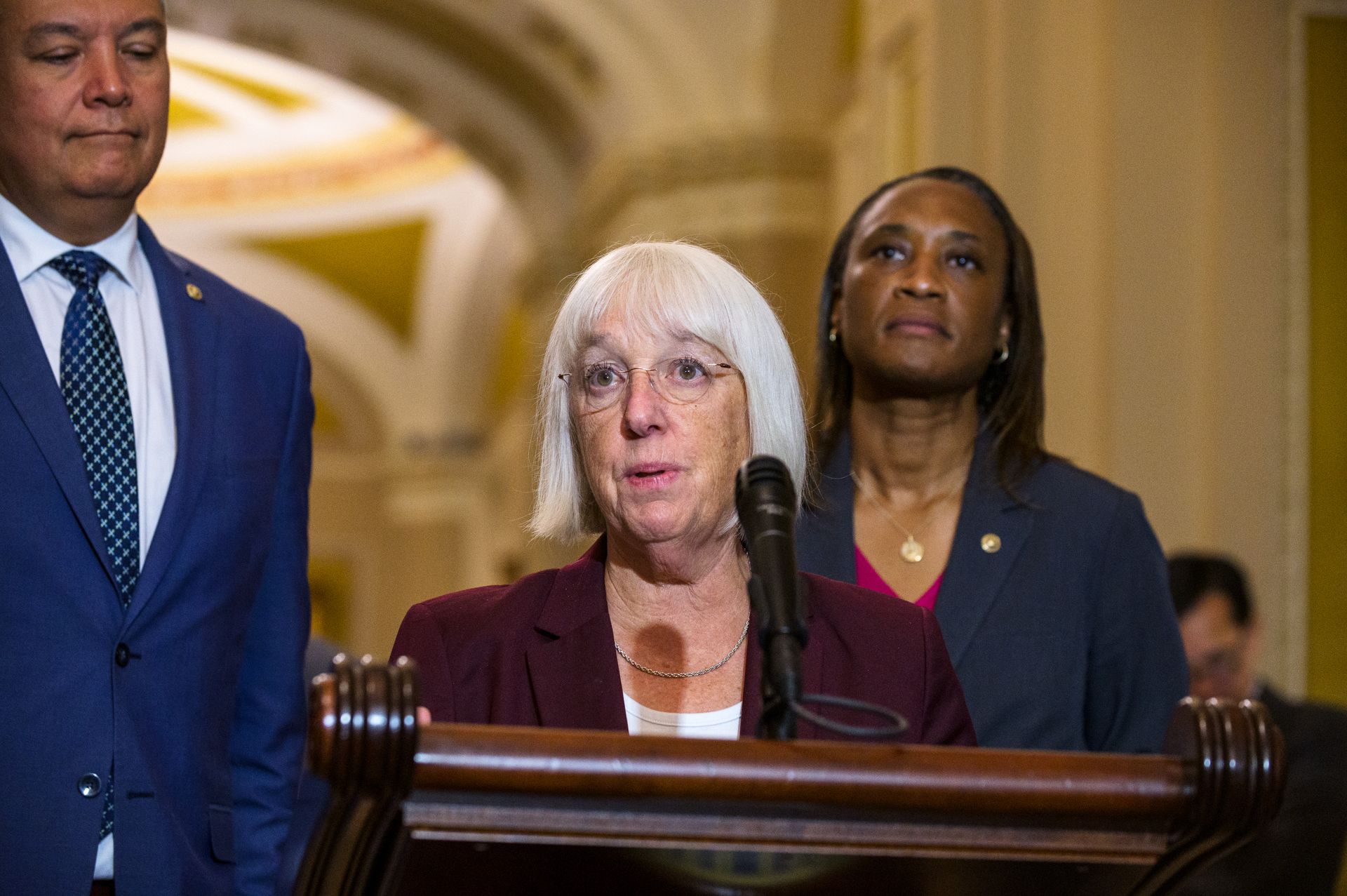Murray fought back against Trump Administration efforts to halt EEOC pay data collection
ICYMI: Murray, DeLauro Introduce the Paycheck Fairness Act
FACT SHEET: America’s Women and the Wage Gap; Women in the U.S. lose a combined over $1.6 trillion each year due to the wage gap
Washington, D.C. – Today, U.S. Senator Patty Murray (D-WA), a senior member and former Chair of the Health, Education, Labor, and Pensions (HELP) Committee, issued a statement on Equal Pay Day and applauded the U.S. Equal Employment Opportunity Commission (EEOC) for launching a historic, brand-new pay data dashboard. The data dashboard features the collection of 2017 and 2018 anonymized pay data reported by approximately 70,000 private employers and federal contractors—representing over 100 million workers—and contains a unique collection of employer-level workforce demographic and pay data, reported by pay band, that will allow industries, employers, and individuals to assess generally how their pay by sex and race compares to others in their industry, job category, or state.
Across all workers in the U.S. in 2022, women were typically paid just 78 cents for every dollar paid to a man, adding up to a difference of $11,450 over the course of the year—and the disparity is worse for women of color. Black women were paid 66 cents, Latina women 52 cents, Native American women 55 cents, and Asian American and Pacific Islander women were paid overall just 80 cents for every dollar paid to white, non-Hispanic men. For a woman working full-time year-round, the current wage gap represents a loss of nearly $400,000 over the course of her career. The wage gap impacts women’s ability to save for retirement and reduces their total Social Security and pension benefits, contributing to more older women living in poverty.
“Equal Pay Day is a reminder that women in this country still face a persistent pay gap—this holds women back, holds families back, and holds our entire economy back. The wage gap persists regardless of industry or education level, and it is present within occupations—this is a serious issue that hurts women across America and cannot just be waved off.
“Part of the problem is that many women don’t have the information they need to fight back against unequal pay. That’s why I’m so excited about the pay data dashboard EEOC announced today—this is an important new tool that will help empower people with the data they need to demand equal pay, with easily accessible data on pay disparities, average industry pay, and more. This data is critical to shedding light on the wage gap and combating wage discrimination—but we still need to pass the Paycheck Fairness Act. This bill is as straightforward as it gets—outlaw pay discrimination and finally achieve equal pay for equal work. I’ll keep fighting until we get it across the finish line.”
Senator Murray has been a leader in Congress in fighting against pay discrimination and for efforts to close the gender pay gap. Murray leads the landmark Paycheck Fairness Act, which would combat wage discrimination and help close the wage gap by strengthening the Equal Pay Act of 1963, ensuring women can challenge pay discrimination and hold employers accountable. Every single Senate Democrat has signed onto the Paycheck Fairness Act. As Chair of the HELP Committee, Murray was instrumental in ensuring that the data for the EEOC dashboard launched today was actually collected. When the Trump Administration EEOC moved to stop collecting vital pay data—removing the requirement for employers to report their employee’s pay and hours sorted by race, sex, ethnicity, and job category—Murray fought back, criticizing EEOC Chairwoman Janet Dhillon for undermining transparency and eliminating a critical tool for workers and employers to address pay inequity.
###


